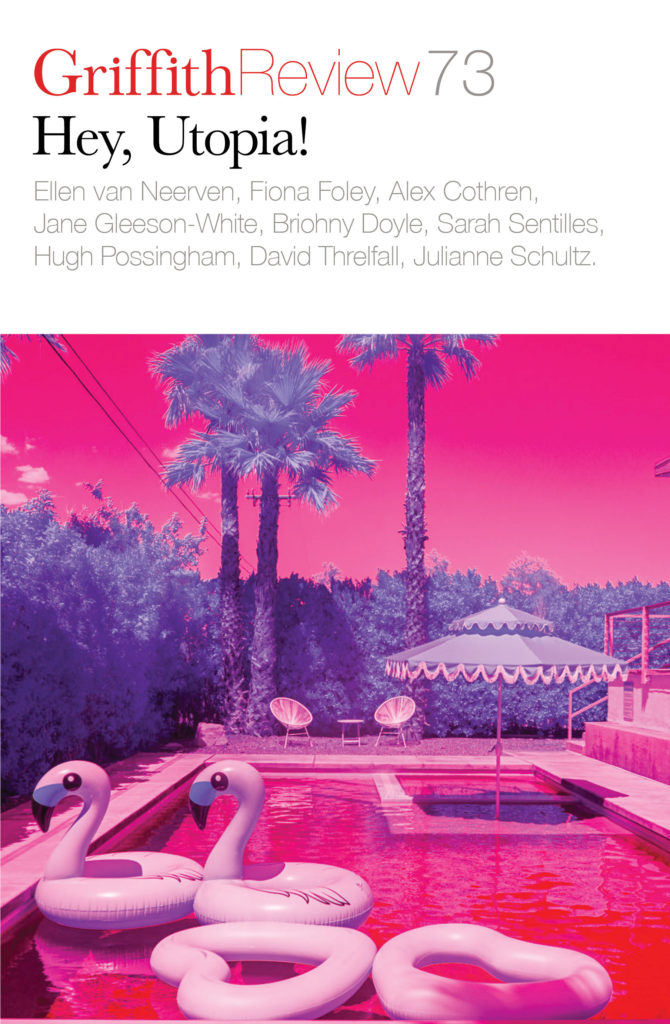Featured in

- Published 20210803
- ISBN: 978-1-922212-62-7
- Extent: 264pp
- Paperback (234 x 153mm), eBook


Already a subscriber? Sign in here
If you are an educator or student wishing to access content for study purposes please contact us at griffithreview@griffith.edu.au
Share article
About the author

Sarah Sentilles
Sarah Sentilles is the author of several books, including Stranger Care: A Memoir of Loving What Isn’t Ours, published earlier this year by Text,...
More from this edition

The open-plan office
FictionDR X TREMBLED with excitement. The hall was quiet, deserted, but behind every closed door she knew that there were scientists doing experiments and...

New world dreams
EssayEREWHON. SOUNDS WELSH – the soft ‘h’. That’s what I thought when I first saw the word on the higgledy-piggledy front fence of a...

Facing foundational wrongs
EssayROMAN QUAEDVLIEG STANDING tall in his smart black suit – medals glistening, insignia flashing – looked every bit the man-in-uniform from central casting when he stood...